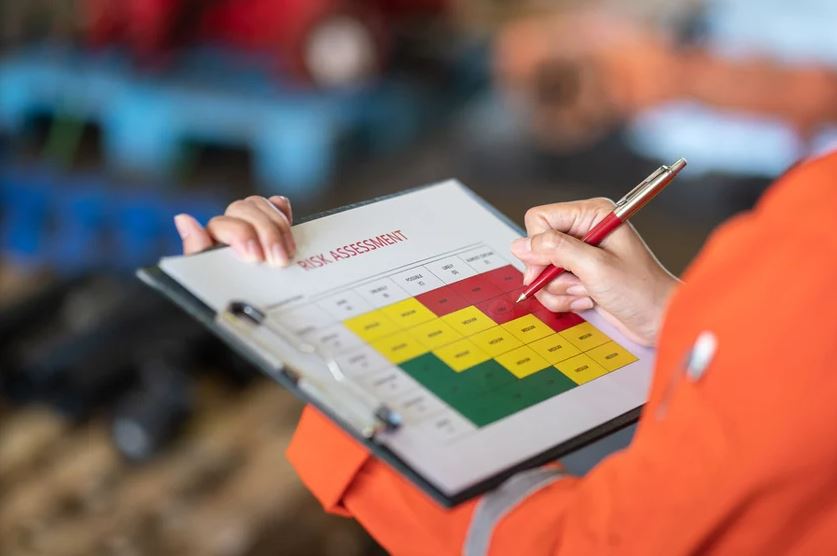
How To: Tailor Your Security Needs
With rising crime and social unrest in the Greater Toronto Area, safety and security are paramount, especially for members of minority communities who may face unique threats. The need for an effective, customized security plan is essential to create a space where people can live, work, and worship without fear. Using the following brief tips, this article presents a high-level security strategy that aims to mitigate risks across all aspects of daily life, ensuring a balance between comprehensive protection and minimal disruption to routine.
Home Security
1. Physical Security Measures:
Perimeter Security: Install a fence with automated gates. Use motion detectors and CCTV cameras with night vision around the perimeter.
Entry Points: Reinforce doors with high-quality deadbolts. Windows should have locks and break-resistant glass. Consider smart locks with biometric features.
Alarm System: Implement a state-of-the-art alarm system that connects to a central monitoring station and notifies local law enforcement during an intrusion.
Lighting: Install bright, motion-activated outdoor lighting to deter intruders and improve visibility at night including for cameras.
Security Signs: Post security system signs and neighbourhood watch notices around your property as psychological deterrents against potential criminals.
Guard Dog: Consider adopting a trained guard dog. Besides being a friendly companion, many dog breeds can serve as a deterrent to intruders. Their keen sense of hearing and smell can detect unusual activity, and their presence can make potential criminals think twice before entering your property.
Private Security / Close Protection Service: Hiring JFORCE, a licensed, trained, insured security service that will work with you to develop and execute a security plan tailored to your needs.
2. Privacy Enhancements:
Window Treatments: Use curtains or blinds that prevent outsiders from looking in, especially in private areas.
Soundproofing: Install materials that reduce the sound escaping the house, protecting conversations from external listeners.
Privacy Film: Apply reflective or frosted film on windows to enhance privacy without sacrificing natural light.
Smart Home Assistants: Utilize smart home assistants with security settings to monitor for unusual sounds like breaking glass or alarms, notifying homeowners immediately.
Workplace Security
1. Access Control:
Secure Entry Points: Implement card access systems to restrict entry to only authorised personnel.
Visitor Management: Use a visitor management system that logs visitor data and issues temporary badges.
Biometric Systems: Implement biometric security measures such as fingerprint or facial recognition to ensure that only authorised personnel can access sensitive areas.
Electronic Key Management: Use an electronic key management system to track and control physical key usage within the workplace.
Use A Licensed Security Company: Use licensed, insured security guards to monitor and control access points. Professional security guards add a layer of human observation and response that technology alone cannot provide. They can also perform routine patrols and respond quickly to incidents, ensuring a proactive approach to workplace safety.
2. Surveillance and Monitoring:
CCTV Systems: Install cameras at strategic points. Regularly monitor the footage and maintain archives for a reasonable period.
Regular Audits: Conduct security audits to identify and mitigate any vulnerabilities.
Environmental Monitoring: Install sensors to detect water leaks, gas leaks, or unusual temperatures, which could indicate sabotage or equipment failure.
Mobile Monitoring Apps: Utilise mobile apps that allow security staff to remotely view camera feeds and receive alerts, enhancing response times.
Commuting and Routine Travel
1. Personal Safety Measures:
Awareness Training: Train in self-defence and maintain awareness of surroundings.
Safe Routes: Plan and use safe travel routes. Avoid high-crime areas and vary routes periodically.
Travel Companions: Whenever possible, travel in groups or with at least one other person, especially during late hours or in less secure areas.
Emergency Apps: Utilise personal safety apps that can send instant alerts to authorities or selected contacts with your GPS location in case of emergency.
2. Vehicle Security:
GPS Tracking: Install GPS tracking in vehicles.
Emergency Kit: Keep an emergency kit in the vehicle, including a first aid kit, a charged cell phone for emergencies, and contact numbers for local emergency services.
Anti-Theft Alarms: Install a state-of-the-art vehicle alarm system that alerts you on your smartphone if your vehicle is tampered with.
Dash Camera: Install a dash camera that continuously records while driving; it can be crucial for evidence in accidents or if the vehicle is stolen.
Engine Immobiliser: Install an engine immobiliser system in your vehicle. This device prevents the engine from starting unless the correct key (or key fob) is present, effectively thwarting attempts to hot-wire the vehicle.
Emergency Response Strategies
1. Emergency Planning:
Contact List: Create a list of emergency contacts, including local law enforcement, medical facilities, and a trusted security consultant.
Evacuation Routes: Establish and practice evacuation routes from home and workplace.
Medical Information Cards: Keep medical information cards for each family member in wallets or purses to assist first responders during a medical emergency.
Utility Shut-off Procedures: Ensure all family members or employees know how to safely shut off utilities in an emergency to prevent further damage or danger.
Hire a Security Consultant: Engage a professional security consultant to develop and review your emergency response plans. A consultant can offer expert advice tailored to your specific needs, help identify potential vulnerabilities, and recommend improvements to ensure that your emergency protocols are comprehensive and up-to-date.
The basis of any effective security plan is first working with an expert security service to develop a risk assessment that is tailored to your and your family’s unique living arrangements, workplaces, mode of transportation, daily routines, and community networks. Once this risk assessment has been created, it is essential to properly integrate personal, technological, communal, and personnel (namely, licensed security guards) aspects of security into a comprehensive security framework that maximizes flexibility of response and minimizes interference with desirable activities while balancing costs versus necessary protection.



